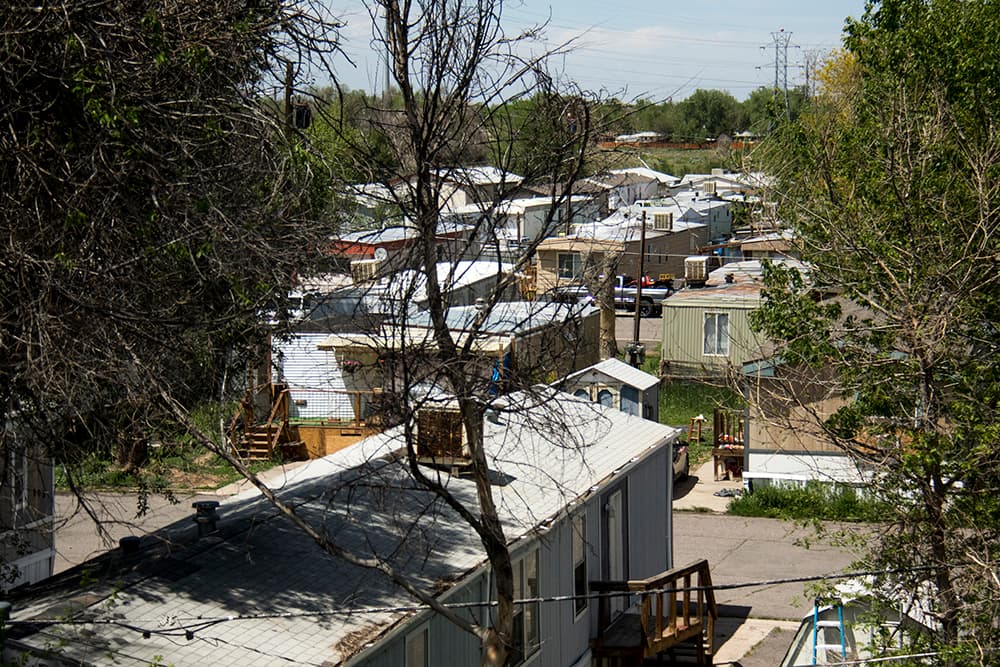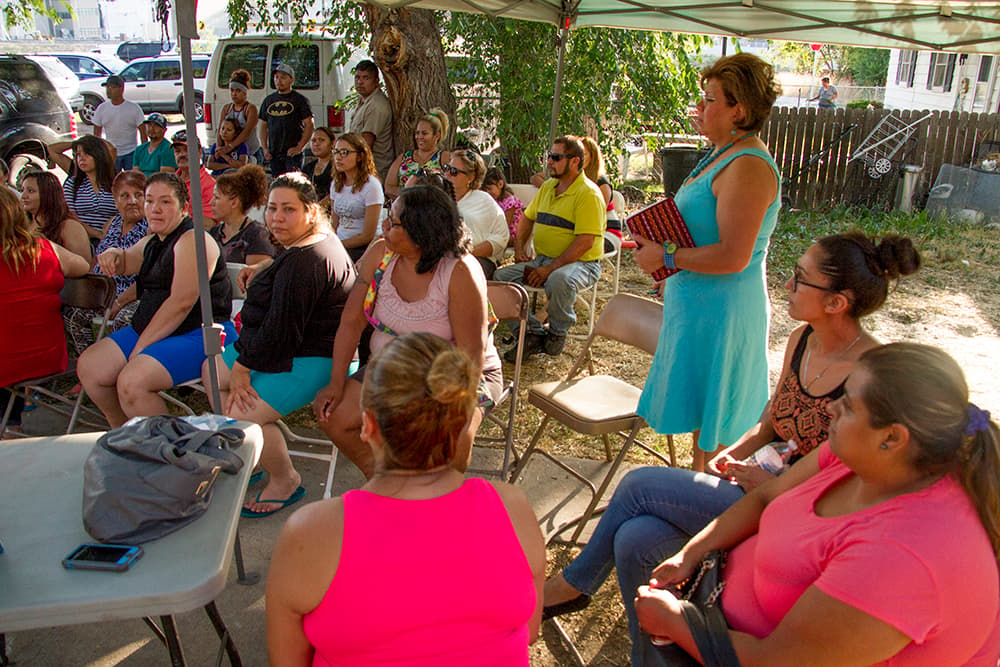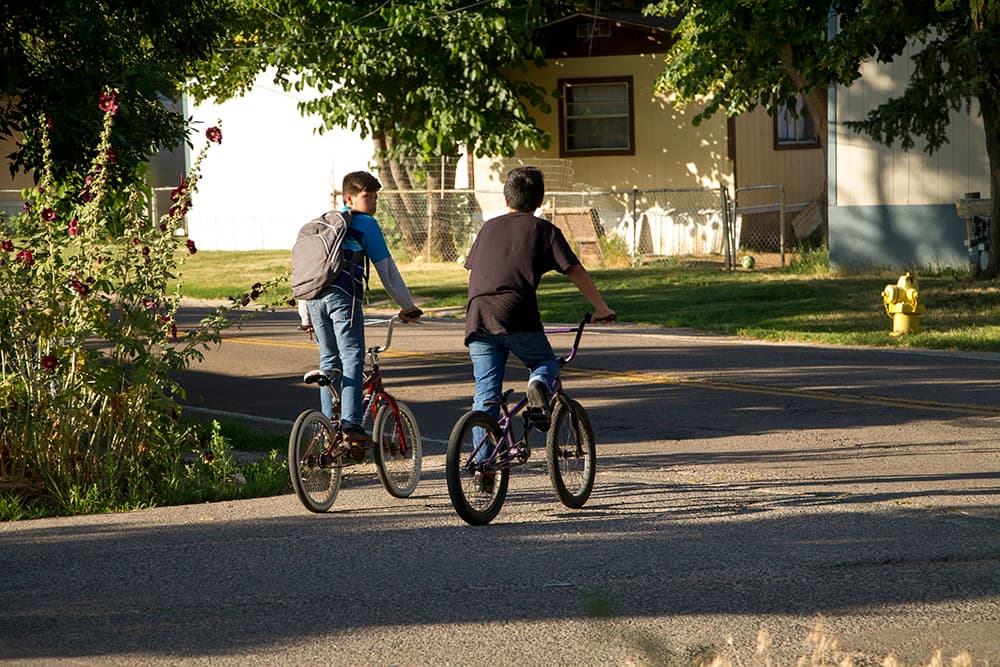
The owners of Denver Meadows mobile home park in Aurora have told the residents they have until next June to find somewhere else to live. In the meantime, they keep raising the rent on the roughly 350 people who still live there.
Residents had already seen two rent increases since they were told in spring 2016 that the park would close within two years. Luz Galicia, president of the homeowners association and a community organizer in the park, said residents received another notice last week that said rent would go up another $50 to $60 starting Sept. 1.
This brings most residents to $900 a month just for the lot rent, with many making additional payments on their trailers. Lot rents aren't uniform through the park, so some people are paying a little more or a little less. That compares to an average lot rent in the Denver metro area of $680 a month, according to information collected by community organizers with Colorado 9 to 5. That $680 number is also much closer to what I found when I was researching mobile home parks earlier this year.
The owners did not respond to a request for comment on the rent increase. Earlier this year, owner Shawn Lustigman said that just because he's planning to close the park and not making any improvements or investments doesn't mean his costs aren't going up.
"Most of the people are low-income and have to make sacrifices," said Luz Galicia, president of the homeowners association in Denver Meadows.
For Galicia, it means watching her grocery budget more closely, but some neighbors don't know where they'll get another $50 to $60 a month. Galicia said one woman who has lived in the park for 25 years and needs a kidney transplant called her in tears.
"She called me when she saw the note, crying, 'What am I going to do?'" Galicia said. "With the help of some good-hearted people, we are going to give her $10 each, here and there, to cover the increase."

Mobile home parks have long represented an affordable option for people who want to own their home or who prefer a house to an apartment. However, in parts of the Denver metro area, these parks are under increasing pressure from development. Denver Meadows lies within an area that Aurora has designated for transit-oriented development around the R Line and very close to the University of Colorado Anschutz Medical Campus. The Aurora City Council turned down a rezoning request last year because there was no plan for what would happen to the roughly 100 households who live in Denver Meadows, at which point the owners said they would simply close the park.
People who live in mobile homes face certain disadvantages. Often, they've invested significant money in their homes as assets, but they don't own the land underneath and can be evicted or displaced like other renters. When that happens, they have a trailer that they're responsible for.
About 25 percent of the homes in Denver Meadows cannot be moved because they are too old, and residents who can move their trailers face tens of thousands of dollars in costs to do so. A note dated June 22 informed residents that if their homes remain in the park after June 30, 2018, they will be charged $40 a day until they pay for it to be removed.
Some residents are organizing to try to buy the park or, barring that, to find land where they can relocate as a community.
Galicia said the increase in rent makes it that much harder to save money for a move or to buy land.
In addition to the rent increase, residents also received notes saying they need written permission to have more than two cars and that any unauthorized vehicles, cars with flat tires, cars with missing tags or cars parked on the street rather than in spaces will be towed. In the same note, they were told they must be with their children "at all times."
"We are truly concerned for the safety of your children as we have seen them walking or bicycling the park by themselves," the note read.
Galicia said she believes the rent increase is intended to push residents out to avoid any potential responsibility for relocation and to reduce the organizing power of residents.
"The strategic plan is to make our lives miserable until we leave," she said.

Correction: This article has been updated to correct the date after which residents would be charged if they remain in the park.











